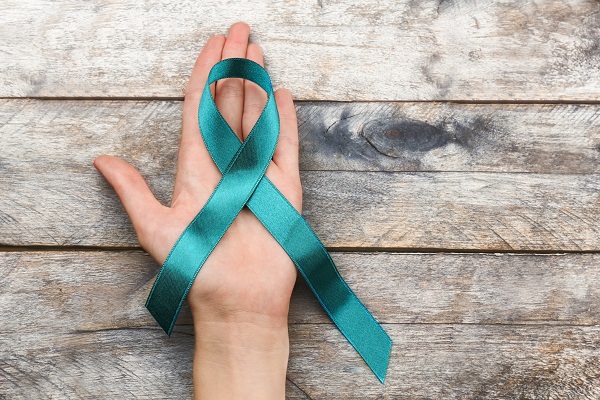 If you happen to notice any women and men sporting large amounts of teal at any point this September, it’s likely because they are participating in the effort to bring attention to the prevalence of ovarian cancer during the month dedicated to awareness of this “silent killer”.
If you happen to notice any women and men sporting large amounts of teal at any point this September, it’s likely because they are participating in the effort to bring attention to the prevalence of ovarian cancer during the month dedicated to awareness of this “silent killer”.
Of the several different types of gynecologic cancers that affect women, ovarian cancer is considered among the deadliest. As noted by SLOCA (St. Louis Ovarian Cancer Awareness), “nearly 22,000 women are diagnosed with the disease annually” and “nearly 15,000 women will die of it” each year.
What Are The Symptoms Of Ovarian Cancer
One awareness campaign coined the slogan regarding ovarian cancer: “It Whispers, So Listen.” In reality, the majority of women eventually diagnosed with ovarian cancer experience “very real symptoms” that are initially dismissed or misdiagnosed. These symptoms can include:
- Bloating
- Pelvic or abdominal pain
- Urgent or frequent need to urinate
- Difficulty eating due to full feeling
- Pain with intercourse
- Fatigue
- Menstrual irregularities
- Unexplained weight gain or loss
If you find yourself experiencing any of these symptoms on a regular basis, take note of which symptoms you are experiencing and how often. If symptoms persist for more than a few weeks, seek medical attention right away. The sooner you can figure out what is going on with your body, the sooner you can catch any potential cancers or other illnesses.
Understand The Risk Factors Of Ovarian Cancer
Certain risk factors can increase the likelihood that a woman may develop ovarian cancer. Women who have a family history of breast, ovarian, or colorectal cancer, and women who have never had children are more likely to be diagnosed with ovarian cancer. Additionally, women with certain gene mutations are also at a much higher risk of experiencing ovarian, breast or colon cancer.
So, what can you do to ensure your health or the health of your loved ones?
Know The Symptoms & Be Aware Of Your Own Body
Perhaps the most important step in ensuring early detection of ovarian cancer is to be simultaneously aware of its symptoms as well as remain conscious of your current physical health. If you experience any of the above symptoms for a prolonged period of time, contact your physician. There are many free women’s health apps like Glow available to help you track your daily health and provides insights into any symptoms you may experience.
Know Your Health History, Including Whether Any Of The Aforementioned Risk Factors Apply To You
Having a general knowledge of your own health history, is another important safeguard against missing those early signs of ovarian cancer. Especially if any forms of cancer are present in your family history. If you have reason to believe you may possess one of the gene mutations linked to higher risk of cancer, you can consult your gynecologist about the possibility of genetic testing to see if you are a carrier.
Know That Support & Resources Exist: You Are Not Alone!
If you or someone you love is faced with the diagnosis of ovarian cancer, know that there is an abundance of support and resources available to you! You do not have to walk this journey alone, nor should you!
No matter who you are, you can join in the effort to fight ovarian cancer and support survivors and their families! Share this article and other resources to promote education on early detection of symptoms or participate in the National Awareness Month by sporting your teal or find an event near you!
Together, we can support woman facing this diagnosis and promote the health and well-being of our daughters, sisters, wives, mothers and friends.

